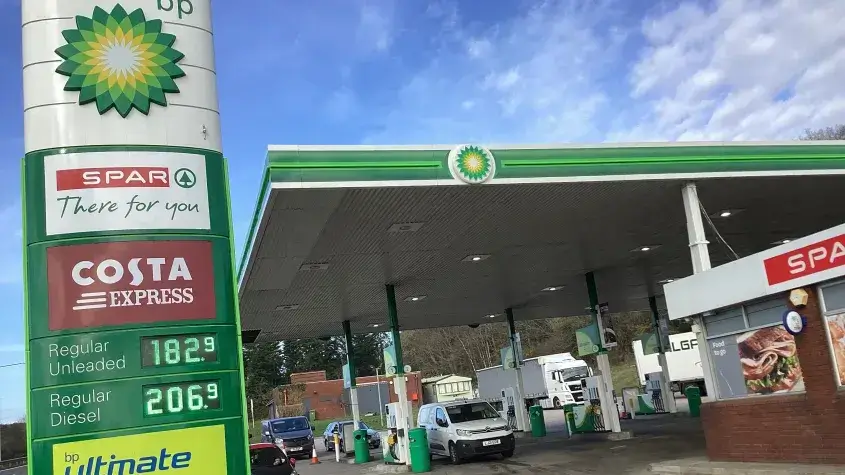After almost three weeks in which petrol and diesel prices have risen day after day, the petrol price at the pump has dropped for the first time on Friday. According to UnitedConsumers, the average suggested retail price of gasoline is 2,492 euros, one cent lower. The diesel price is still rising and costs 2,379 euros, 0.4 cents more than today.
“The highlight has been for the time being,” says Paul van Selms of UnitedConsumers. The average national recommended retail price is calculated on the basis of the recommended retail prices of the five largest oil companies (BP, Shell, Esso, Texaco and Total).
The suggested retail price of petrol and diesel thus follows the fall in crude oil prices, although the fall is less sharp. The oil price fell about 15 percent yesterday. Today, the oil price fluctuated around $112 for a barrel of Brent.

Oil and gas group Shell says that the oil price determines 21 percent of the price at the pump. About 40 to 50 percent of the fuel price is determined by excise duties and VAT. In recent weeks, prices at the pump have risen rapidly in line with the rise in crude oil prices. In addition, the euro depreciated against the dollar. Oil is usually settled in dollars and so it becomes more expensive for European companies to buy oil.
Panic in the market
According to fuel supplier Stephan Mangnus of Sakko, the explanation for the relatively small drop in prices at the pump is the great uncertainty among oil traders. They fear diesel and petrol shortages, now that oil from Russia is less popular and alternatives are being desperately sought. “There has been panic in the market in recent days,” says Mangnus. “There are parties that call us and ask us to guarantee that we can continue to deliver. We have never experienced that.”
According to Mangnus, delivery is not a problem for him because annual volumes are fixed in contracts. “But in the diesel and petrol markets, prices are now rising even faster than the price increase for crude oil. That indicates the expected shortage and unrest.”
Demand for diesel high
Filling stations choose to apply those higher prices directly to the existing stocks at the pump. “Petrol stations are directly confronted with this cost increase and are therefore implementing those costs,” says a spokesperson for the Dutch Petroleum Industry Association.
The diesel price has risen faster than the price of petrol in recent weeks. According to Paul van Selms of United Consumers, the possible explanation for this is that diesel is mainly used by companies and business drivers.
“They continue to drive at the current prices and so the demand for diesel remains high. Petrol is used more by private individuals and in some cases they can choose to leave the car for an extra day.”
Reported by NOS














